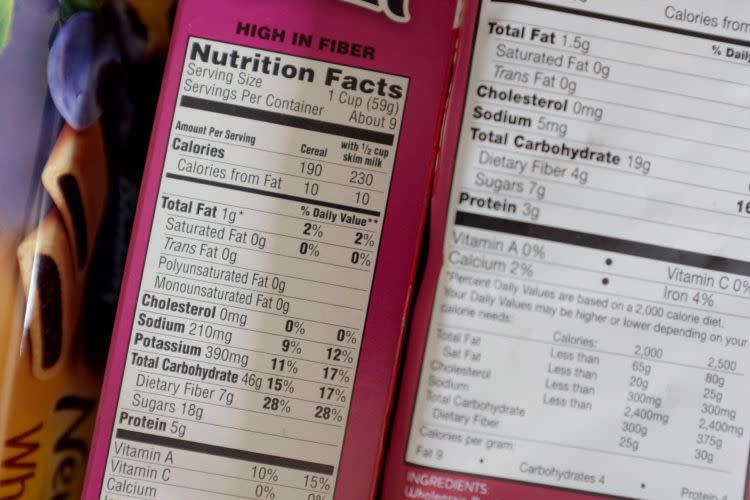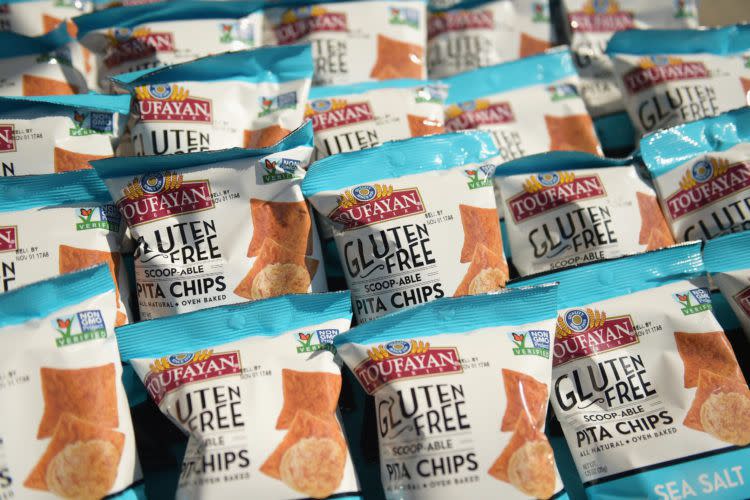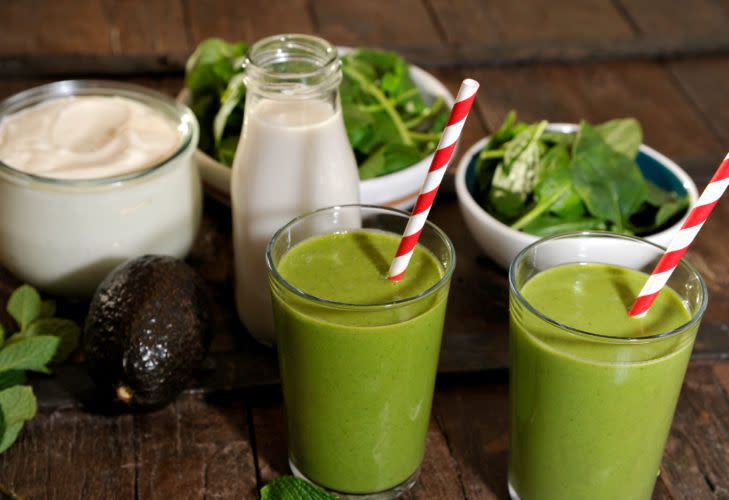7 Benefits of Metformin (Including Weight Loss)

Metformin is the most commonly prescribed oral drug for diabetes. Of course, if you or a loved one receives treatment for diabetes, you probably already knew this.
What you may not know, however, is that the benefits of metformin don’t begin and end with diabetes.
While it’s approved by the U.S. Food and Drug Administration (FDA) to treat diabetes, this drug is prescribed off-label to treat several other kinda-but-not related health problems.
Metformin lowers blood sugar levels by decreasing the amount of glucose the liver produces, diminishing how much is absorbed and enhancing insulin sensitivity.
That’s amazing for people with diabetes, but greater insulin sensitivity has positive ripple effects throughout the body. Many benefits of metformin come from its off-label uses.
We’ll get more into that in a minute, but as a quick spoiler, off-label uses for metformin include managing gestational diabetes (diabetes that develops during pregnancy), addressing weight gain issues caused by antipsychotic medication and treating and preventing polycystic ovary syndrome (PCOS).
What Is Metformin Used For?
Metformin belongs to a group of drugs called biguanides. By “group,” we mean it’s the only one. There were two more, but in the ‘70s, the others were withdrawn from clinical use for causing lactic acidosis (lactic acid in the bloodstream).
The official use of metformin is to lower blood sugar (or blood glucose concentration in science talk) for people with type 2 diabetes. It does this by improving the body’s response to insulin and decreasing the amount of blood sugar produced by the liver and absorbed by the intestines or stomach.
Metformin also makes muscle tissue more sensitive to insulin so glucose can be used for energy, according to the American Diabetes Association.
The relationship between glucose and insulin is tricky to grasp, so here’s a quick explainer: Insulin helps move glucose from blood into cells, where it can be used as energy. So as glucose rises, so does insulin.
Think of insulin as the front-of-house staff at a hot new restaurant in town (called Your Cells) and glucose as the patrons.
When things are balanced, the staff (insulin) lets a steady — but not overwhelming — flow of people (glucose) into the restaurant (your cells).
When there’s not enough staff (insulin) to properly manage the flow of patrons (glucose), people are forced to wait outside and take up the sidewalk (your bloodstream), which creates a bit of a frenzy.
For a restaurant, this can mean turning down good business. For your body, it means high blood sugar.
And it goes both ways. When the staff (insulin) allows too many patrons (glucose) into the restaurant (your cells), it can make the restaurant look dull from the outside because there’s no traffic on the sidewalk.
For your body, this is low blood sugar.
Metformin (and the brand-name versions, Riomet and Glucophage) isn’t used by people with type 1 diabetes, an autoimmune disorder wherein the body does not make insulin.
Metformin can have side effects, though they’re usually mild.
The most common side effects are gastrointestinal (everyone’s favs: diarrhea, bloating, stomach pain, gas, indigestion and constipation). These affect up to 30 percent of metformin users.
In U.S. clinical trials, about four percent of participants couldn’t continue metformin due to adverse effects.
While rare, lactic acidosis (when lactic acid, the same thing that makes you sore after a workout, builds up in the blood) can be a side effect in those with poor kidney or liver function or due to an overdose of metformin. The incidence of lactic acidosis is one in 30,000, so it’s not something you should lose sleep over.
(Related: Are Diabetes Drugs Safe & Effective For Weight Loss?)
7 Metformin Benefits
Now, for the question that brought you here: What are the benefits of metformin? There are actually a bunch of pretty cool benefits of this diabetes drug.
Here’s a sneak peak of what metformin can do:
Aid in weight loss
Offer anti-tumor effects
Reduce the risk of heart disease
Help manage gestational diabetes
Improve cognitive function
Help with PCOS and infertility caused by PCOS
Possibly extend lifespan
Read on for the nitty-gritty of all metformin can do (it’s honestly kind of a show-off).
Metformin and Weight Loss
Metformin is considered weight-neutral, meaning it isn’t related to drastic weight gain or loss. However, studies show it can result in modest weight loss in people with diabetes.
Antipsychotic medications can increase blood glucose levels — this often causes weight gain and, to a lesser extent, diabetes.
Since metformin has the opposite effect and lowers glucose levels, the drug can effectively counter weight gain caused by antipsychotics. This is excellent news for anyone deterred from taking their antipsychotic medication for fear of not fitting into their clothes.
Remember, most metformin studies are conducted on those with diabetes. So there’s not much research on whether it causes weight loss in non-diabetic individuals.
That said, a 2013 study on people without diabetes who were overweight or had obesity found that those taking metformin lost between 5.6 and 6.5 percent of their body weight. In contrast, the control group gained 0.8 to 3.7 percent.
However, this was a smaller study, and more research on the effects of metformin on people without diabetes is needed.
Offers Anti-Tumor Effects
One of the most intriguing benefits of metformin is that it seems to have anti-tumor effects in certain tumor-related cancers, including ovarian, breast, colon, prostate and colorectal.
One analysis found that metformin “reduced cancer incidence and mortality in patients with diabetes, with overall cancer incidence reduced by 31 percent and cancer mortality reduced by 34 percent.”
It’s thought that metformin has anti-tumor effects because it lowers insulin levels and keeps tumor cells from multiplying. But again, more research is needed on metformin’s anti-tumor effect on people without diabetes.
Reduces Risk of Cardiovascular Events
Call it Cupid because, as a cardiovascular protective agent, metformin is good for your heart. That sounds hardcore (and it is), but more simply put, the drug can help prevent cardiovascular disease and heart failure.
Cardiovascular complications are the leading cause of death in people with diabetes. People with diabetes are twice as likely than someone who doesn’t have the condition to have heart disease or a stroke.
Research findings on metformin and heart health are mixed. In one study, type 2 diabetes patients showed a “significant reduction” in a cardiovascular composite when treated with metformin compared to those treated with sulfonylurea (one of the other popular diabetes medications) after five years.
Researchers think the most pronounced effects of metformin on heart health occur after continuous use for five or more years.
(Related: Ozempic vs Metformin For Weight Loss)
Helps Manage Gestational Diabetes
Gestational diabetes affects roughly 8 percent of pregnant people, according to the most recent data from the Centers for Disease Control and Prevention (CDC).
When the body can’t make enough insulin during pregnancy, gestational diabetes may occur. The condition typically resolves after birth. And while it can — and does — happen to anyone, being overweight and having obesity is linked to gestational diabetes.
Metformin may be prescribed as an alternative to insulin in cases of gestational diabetes. Though the medication crosses the placenta and can be present in breast milk, it’s still considered safe for pregnant women.
If left untreated, gestational diabetes can cause high blood sugar levels in the fetus since glucose crosses the placenta. It can result in a large baby, as excess sugar the fetus doesn’t need for energy is stored as fast. Babies born to mothers with gestational diabetes often have hypoglycemia.
This may seem counterintuitive, as hypoglycemia is low blood sugar (hyperglycemia is high blood sugar), but infants born to mothers with gestational diabetes receive higher sugar levels in utero, and so their bodies make more insulin to counter this. When they’re born and not getting excess sugar anymore, they have too much insulin, which causes blood sugar to plummet.
These babies are also at risk for obesity later in life.
Improves Cognitive Function in People With Diabetes
Diabetes damages blood vessels and nerves, so it can affect the brain too.
According to the CDC, this can lead to various issues, like mood shifts, hormonal changes and weight fluctuation. Perhaps even more nerve-racking, it can also create problems involving memory and learning — and, over time, may contribute to serious cognitive issues like Alzheimer’s disease.
Here comes metformin again — the drug may improve cognitive function in people with diabetes.
One meta-analysis found that metformin reduced the incidence of cognitive impairment, but not specifically Alzheimer’s disease in adults with diabetes.
However, researchers noted that there is only “weak support” for the idea that metformin can prevent cognitive impairment in people without diabetes. So more research is needed there.
Helps Prevent PCOS and Manages Anovulatory Infertility
Like so many disorders affecting women, PCOS isn’t fully understood and is maddeningly underdiagnosed.
One thing that is known, however, is that many women with PCOS are insulin-resistant, meaning they produce more insulin than they need to. And according to a 2012 study, they’re at “markedly high risk for developing diabetes.”
The increased circulating levels of insulin have direct effects on the ovaries, including excess testosterone production and anovulation (a condition where ovulation doesn’t happen, leading to infertility).
Metformin is effective as a treatment for infertility among women with PCOS who don’t ovulate regularly. A study on 702 women found that the clinical pregnancy rate for those using metformin versus a placebo group was significantly increased.
May Extend Lifespan
Let’s get this off our chest: You won’t suddenly be the next Benjamin Button if you take metformin. However, early studies (on rats, not humans) show that metformin may slow aging and increase life expectancy.
This seems to result from the drug’s known antioxidant effect and its ability to improve insulin response. The theory is that it has a substantial impact on age-related diseases — aging can induce insulin resistance, causing a slew of medical conditions.
Understanding the Benefits of Metformin
Metformin is kind of like a trendy job in Silicon Valley — it comes with lots of great benefits.
In terms of diabetes care, metformin is the go-to treatment for type 2 diabetes and is the most commonly prescribed oral medication for the condition. It’s typically taken twice daily and is available in immediate- or extended-release tablets.
Here’s what to keep in mind about the benefits of metformin:
Metformin isn’t like other diabetes medications prescribed off-label for weight loss (we’re looking at you, Ozempic). However, it may induce modest weight loss in people with diabetes. And while more research is needed, it shows promise in promoting weight loss in situations where weight gain is caused by elevated glucose levels in the blood, as is the case with weight gain from antipsychotic medications or PCOS.
Metformin shows may also help reduce the severity of diseases relating to insulin and glucose levels. This includes PCOS, certain tumor-related cancers, gestational diabetes and age-related diseases.
Side effects of metformin are typically mild and include GI (gastrointestinal) issues like gas, diarrhea or bloating. However, the FDA warns against using metformin if you have kidney disease or a kidney abnormality. It’s important that your healthcare provider monitors kidney function in each patient using metformin.
This article originally appeared on Forhers.com and was syndicated by MediaFeed.org
More from MediaFeed:
25 Weight-Loss "Tricks" You Should Stop Immediately

When it comes to diet and nutrition, we all want to find “the answer” that will fix our alleged problems. As a result, we often latch onto crazy diet ideas that, in the moment, sound like the perfect solution. But these too-good-to-be-true “solutions” can hurt more than help us in our attempts to achieve weight loss and gain healthy habits.
Here are some of the most common diet myths exposed.

The protein-pushing keto craze sure makes it seem like carbs should be avoided at all costs. But do grains deserve their bad reputation?
“People often say that carbs are fattening,” says Kristin Kirkpatrick, MS, RD, LD. “But complex carbohydrates, like whole grains, are not ‘fattening’ foods.'”
In other words, avoid refined carbohydrates like white bread, rice and processed snacks, but keep those whole grains for a healthy balance.
Getty Images | Sean Gallup
While diet sodas may be a better alternative than their full-sugar counterparts, medical studies are starting to show that the artificial sweeteners may actually cause us to eat more calories later in the day. If you want to keep the fizz and ditch the artificial sweetener, try flavored carbonated water instead.
Getty Images | Scott Olson
Like carbs, the type of fats we eat makes a difference. That, in combination with how many calories we eat each day, determines our body weight. Trans fats, typically found in many fried foods, can cause cardiovascular disease. However, saturated fats do not have the same effect and can, in fact, help keep us satisfied longer, leading to fewer calories consumed.
Getty Images | Lisa Lake
Maybe you’ve only been eating the egg whites to avoid raising your cholesterol. Well, maybe you don’t have to anymore.
“Unless you are genetically predisposed to high cholesterol or cardiovascular disease, eating the eggs AND yolks can actually help you,” says Darin Hulslander, CEO and owner of DNS Performance and Nutrition. “For one, yolks are high in antioxidants, vitamins, and minerals. Egg yolks also elevate high-density lipoproteins, which are the ‘good’ proteins that can help remove plaque from the arteries.”
DepositPhotos.com
If you count calories, you might think losing weight is as simple as staying under a certain number every day. Unfortunately, this is not necessarily true. You can eat 200 calories of lean protein or 200 calories of chocolate, but the body processes each differently. Depending on what you eat, your body can store or burn more calories. So, use those calories wisely!
Getty Images | Joe Raedle
Reading headlines such as “red meat could lead to cancer” is frightening. And while some studies indicate there is an association with red meat consumption and cancer, it’s important to note that this doesn’t mean it causes cancer. Eating red meat in moderation is not dangerous.
Getty Images | Justin Sullivan
The American Heart Association recommends that people consume less than 1,500 milligrams of sodium (salt) each day. Excessive sodium can lead to high blood pressure. However, this doesn’t mean we have to eat bland food. Use salt in moderation and, if you have high blood pressure, talk with your doctor on the best guidelines for your individual needs.
Getty Images | Justin Sullivan
Sure, peanut butter is a good source of protein and fat. However, you need to be careful about what kind you put in your pantry. Many national brands of peanut butter are filled with extra sugar, fats and preservatives that counteract any health benefits. Check the label and pick up a jar with as few ingredients as possible to get the healthiest version of this favorite snack.
Getty Images | Justin Sullivan
Calories can’t tell time. The time of day of when you eat only matters if you tend to overindulge at the end of the day and eat too many calories. If you happen to eat a late dinner or snack but stay within your normal calorie range for the day, it should all even out in the long run. However, many people mindlessly eat at night because they are bored or tired, and this is what leads to weight gain.
Getty Images | Robin Marchant
This is the one case where all calories are pretty much alike. Multiple studies show that eating the same amount of calories in either a few larger meals or more frequent smaller ones have the same outcome on the body. In other words, this is a case where 1,000 calories in a day are the same, no matter how often you eat during the day.
Getty Images | Steffi Loos
With labels like “Lean Cuisine” and “Healthy Choice,” it’s easy to think that pre-packaged frozen meals are not only convenient but also a better choice to help us in our diet goals. This isn’t always the case. Many of these pre-packaged meals contain too much sodium, which can lead to water retention and bloat. Also, many offer too few calories, which can lead to hunger later on in the day. Check the labels carefully and make sure you’re making the best choice.
Adobe
When looking to avoid processed carbohydrates, many people reach for wheat or multigrain bread over white. But be careful! Make sure you’re picking up 100% wheat or whole grain bread. Otherwise, you could be just be getting mostly white bread with a little wheat flour mixed in — or even just food coloring to make it look brown!
Getty Images | Spencer Platt
This nutrition myth has been around forever, but it’s just not true for most people. Medical studies show that among extremely active people such as marathon runners and skiers, taking at least 200 milligrams of vitamin C every day can possibly cut the risk of getting a cold in half. But for most people, taking daily vitamin C did not seem to actually reduce the risk of getting a cold.
Getty Images | Jack Taylor![<p>Wouldn’t it be great if there were such a thing as a negative-calorie food? You know, the kind that burns more calories when we eat it than it has? Sadly, there is no such thing, even when it comes to something as healthy as a piece of celery.</p><p>“Regardless of the [calories] in the food, you’re always going to be able to get something out of it,” says <a href="https://www.livescience.com/65233-negative-calorie-foods.html" rel="nofollow noopener" target="_blank" data-ylk="slk:Stephen Secor;elm:context_link;itc:0;sec:content-canvas" class="link rapid-noclick-resp">Stephen Secor</a>, a professor of biological sciences at the University of Alabama.</p><span class="copyright"> Getty Images | Sean Gallup </span>](https://s.yimg.com/ny/api/res/1.2/f837s4Ilr6lUhEWmw.Ucuw--/YXBwaWQ9aGlnaGxhbmRlcjt3PTEyNDI7aD04Mjg-/https://media.zenfs.com/en/aol_mediafeed_842/32085de7fa91402f2b43c04bad2a3024)
Wouldn’t it be great if there were such a thing as a negative-calorie food? You know, the kind that burns more calories when we eat it than it has? Sadly, there is no such thing, even when it comes to something as healthy as a piece of celery.
“Regardless of the [calories] in the food, you’re always going to be able to get something out of it,” says Stephen Secor, a professor of biological sciences at the University of Alabama.
Getty Images | Sean Gallup
Organic is simply how ingredients are grown, usually pesticide-, herbicide- and insecticide-free. An organic label does not mean it’s healthier than non-organic foods. Even things like sugar, granola bars and boxed mashed potatoes can be organic. So, don’t rely on an organic label to tell you if something is automatically better for your diet.
Getty Images | Sean Gallup
While cutting out gluten from your diet can help if you have celiac disease, it isn’t really a factor in weight loss.
“Unless you suffer from celiac disease, there’s not much scientific support to back the claim that eating gluten-free is healthier or a smart strategy for weight loss,” says Ashvini Mashru MA, RD, LDN. “Cutting gluten out of your diet most often leads to a reduction in overall calories, simply due to the sheer amount of grain-based foods that we eat on a regular basis.”
Getty Images | Jason Kempin
Fewer calories consumed means weight loss, right? Not so fast!
“In fact, studies have proven it to be the opposite: skipping meals promotes weight gain,” says Cheryl Forberg, RD, nutritionist for “The Biggest Loser.” “When we skip a meal, by the time we eat, we’re so hungry we consume too much, too fast and choose the wrong foods.”
Adobe
Foods like asparagus and lemons are known as natural diuretics. And while these kinds of foods may not hurt when it comes to holding onto excess water, eating large amounts of them will not help get rid of belly bloat or weight.
Getty Images | Miles Willis
Your daily cup of coffee may give you a good dose of caffeine, which is a stimulant to your body. However, that caffeine jolt does not boost your metabolism enough to be a weight loss cure-all. Also, depending on what you add to your coffee (cream, flavorings, sugar), you could be adding extra calories to your day. So if you love a cup of joe, keep it basic and black, if possible.
Getty Images | Bryan Thomas
This is a short-term fix with many long-term problems. By severely cutting daily calories for extended periods of time, your entire metabolism can change to actually hold onto weight! Also, your body needs adequate nutrition to stay healthy. If you want to lose weight and keep it off forever, you need a modest calorie restriction plan that you simply continue and never stop.
Adobe
You cannot outrun a bad diet. It’s as simple as that. Exercise is great for our cardiovascular health and for building good muscle tone. And yes, it does help regulate our weight. But the amount of exercise you have to do to counteract a few extra slices of pizza isn’t sustainable or reasonable. So work in a healthy diet plan along with your regular workouts for optimal results.
Getty Images | Hagen Hopkins
In a pinch, these convenience items are helpful in maintaining a healthy diet. But things like shakes and nutrition bars are not meant to be long-term replacements for healthy meals. Check the ingredients for artificial sweeteners if you buy these items. Your best bet: Make these at home and use them occasionally.
Getty Images | John Sciulli
Yes, some people should probably cut back on sugar in order to make their diet healthier. But naturally sweet foods such as fruits are sources of important vitamins and minerals. The sweets to avoid are those with added sugars and syrups.
Getty Images | Scott Olson
Good news! While fresh vegetables are always a healthy option, so are most frozen varieties. Over time, fresh vegetables can lose nutrients, while frozen ones can retain them longer. Make sure you pick up frozen vegetables without added sauces, cheese or sodium to keep them as close to fresh as possible.
Getty Images | Sean Gallup
Can you imagine life without ice cream, cookies or cake? You don’t have to in order to follow a healthy eating plan. In fact, planning to have some of your favorite treats occasionally can ensure you don’t feel deprived and end up splurging later on.
This article originally appeared on TheDelite and was syndicated by MediaFeed.
Getty Images | Monica Schipper